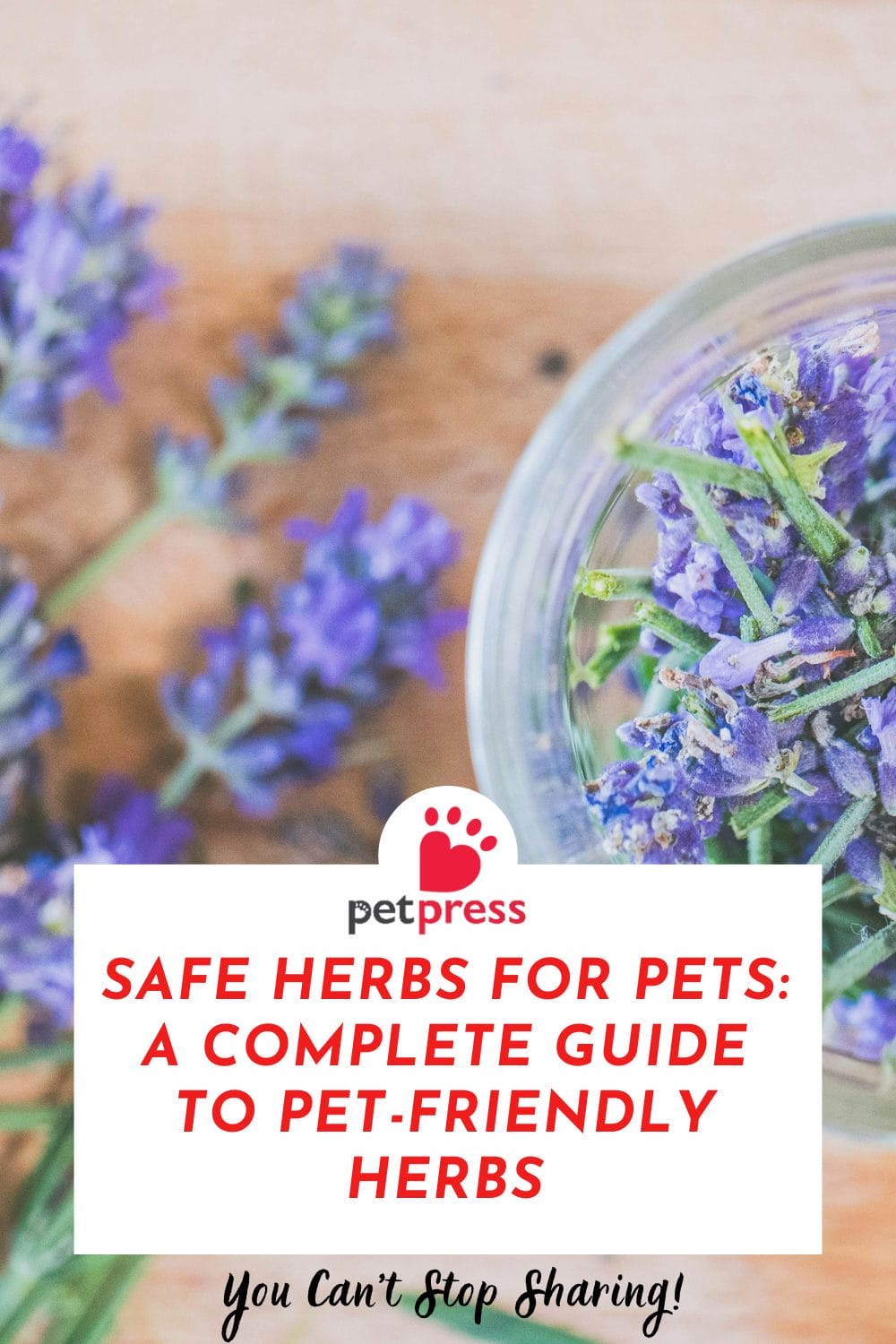
If you’ve ever wondered, “What are safe herbs for pets?” you’re not alone.
Many pet parents want to support their furry (and scaly) friends naturally, but it’s crucial to know which herbs are safe and which are toxic.
Whether you have dogs, cats, or small pets, using herbs safely can improve your pet’s health, digestion, and overall well-being.
In this comprehensive guide, we will explore:
- Why use herbs for pets?
- A list of safe herbs for dogs and cats
- How to use herbs safely with small pets and birds
- Herbs you should avoid
- Practical tips for adding herbs to your pet’s routine
Why Use Herbs for Pets?
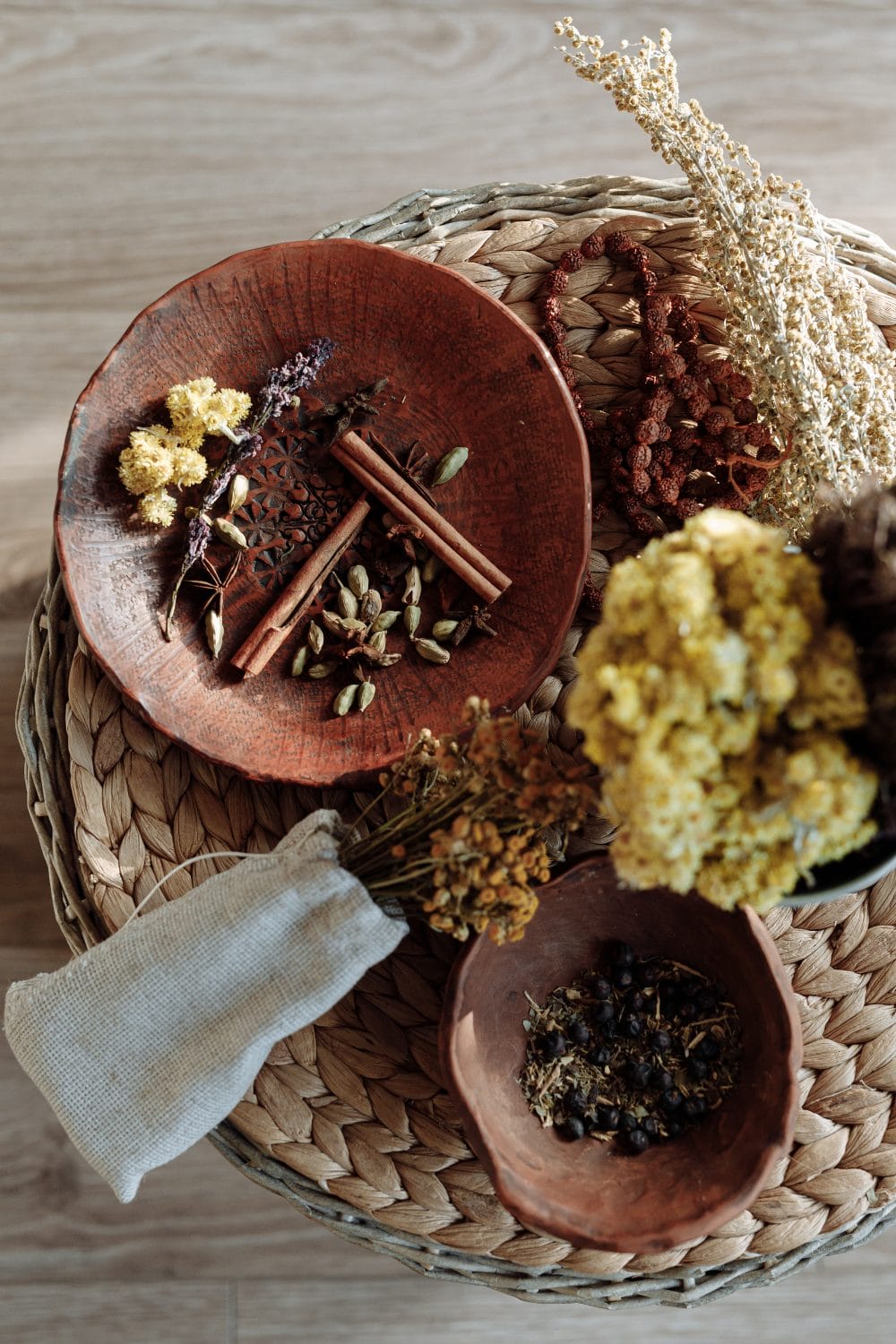
Herbs have been used in holistic care for centuries due to their natural healing properties. They can support:
- Digestive health for pets
- Joint support and inflammation reduction
- Anxiety and stress management
- Immune system enhancement
- Skin and coat health
Many natural pet owners prefer using herbs because they are gentle and effective when used correctly. However, the dosage and species compatibility matter greatly, as some herbs safe for dogs may not be safe for cats, and vice versa.
List of Safe Herbs for Dogs and Cats
Here are pet-safe herbs you can consider, with their potential benefits:
Chamomile
- Calming, helps with anxiety, digestive upsets, and skin irritations.
- Use chamomile tea in small amounts in your pet’s water or food for mild anxiety.
Ginger
- Excellent for nausea, car sickness, and digestion.
- A pinch of grated ginger can help dogs with mild digestive issues, but use cautiously in cats.
Parsley
- Freshens breath, supports kidney health, and is rich in vitamins.
- Use curly parsley, not spring parsley (which can be toxic in high doses).
Turmeric
- A powerful anti-inflammatory herb useful for arthritis and immune support.
- Mix a pinch of turmeric with a healthy fat like coconut oil to enhance absorption.
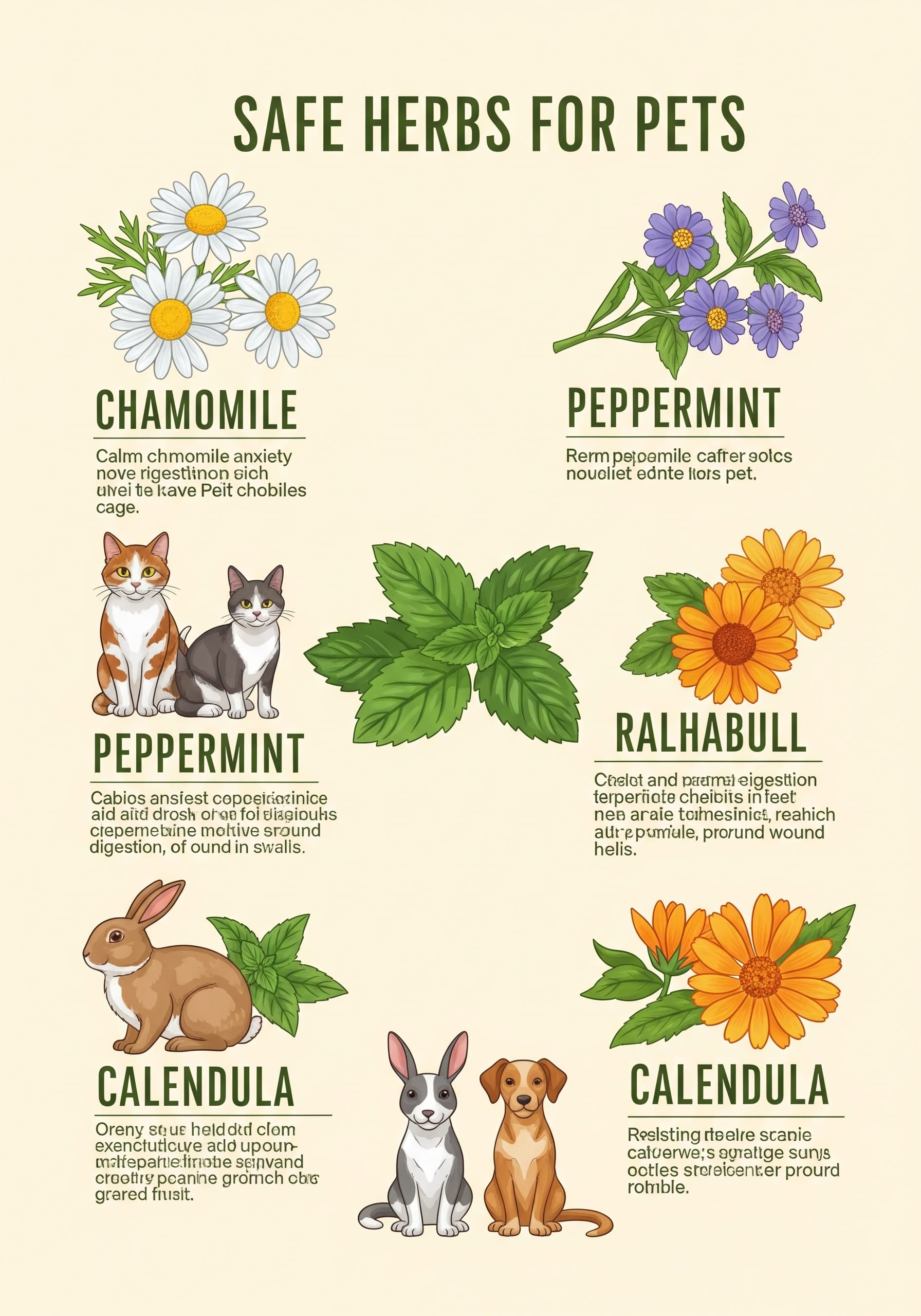
Dandelion
- Supports liver and kidney function, aids in digestion.
- Both leaves and roots are useful, but consult your vet for dosage.
Rosemary
- Acts as a natural antioxidant and helps with digestion.
- Use in very small amounts; avoid for pets with epilepsy.
Milk Thistle
- Known for liver detoxification and support, especially for pets on medication.
- Safe for dogs and cats in appropriate dosages recommended by a holistic vet.
Peppermint
- Helps with digestive discomfort and mild nausea.
- Use sparingly and never with pregnant pets.
When adding safe herbs for dogs and cats, always start with a small amount, monitor for reactions, and consult your veterinarian, especially if your pet has underlying conditions.
Herbs Safe for Small Pets and Birds
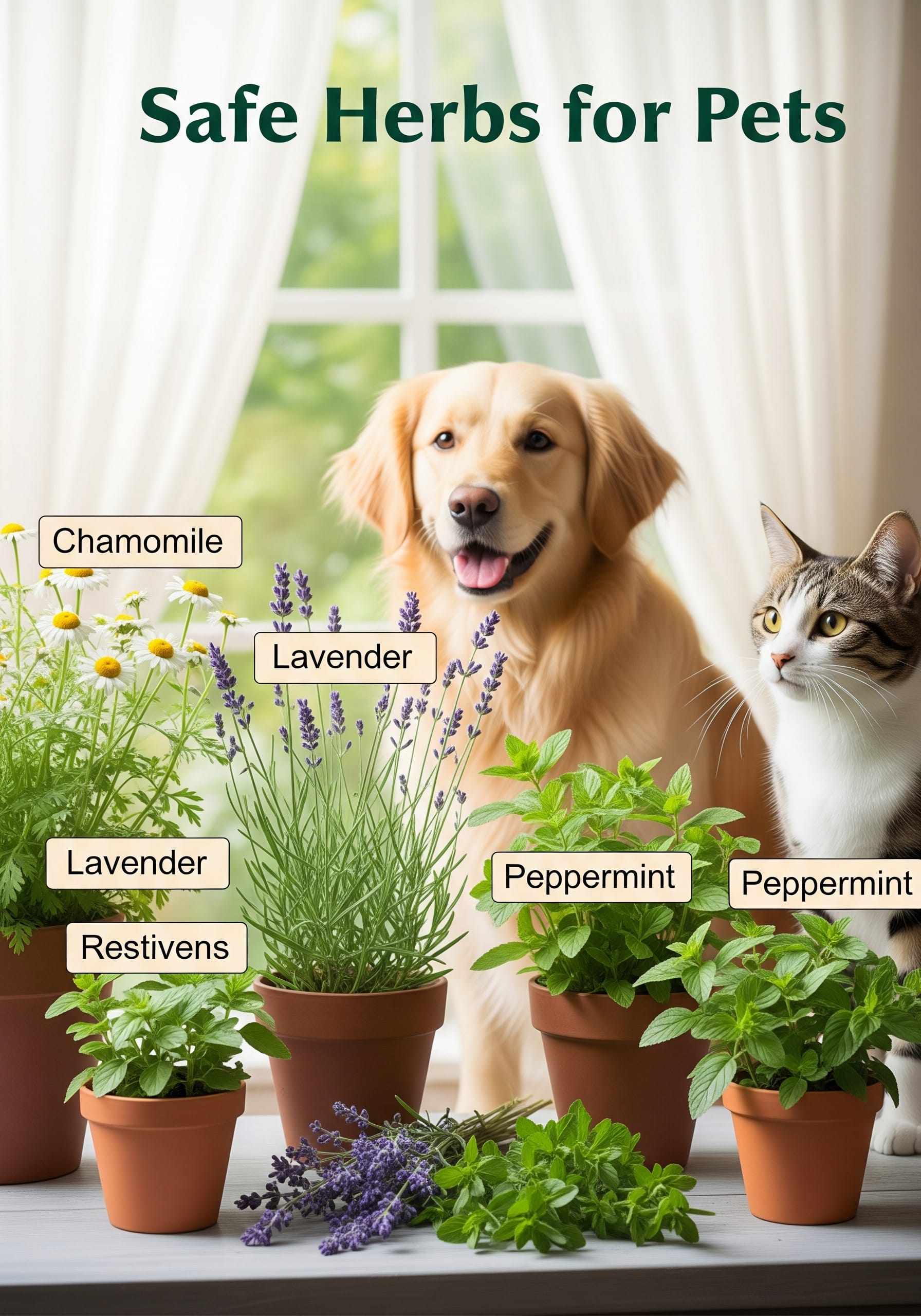
Small pets like rabbits, guinea pigs, and rats can also benefit from herbs in their diet:
- Basil, cilantro, dill, oregano, and thyme are generally safe for small pets.
- Herbs can be offered fresh, ensuring they are pesticide-free.
- Birds can enjoy parsley, dandelion, basil, and cilantro for enrichment and nutrition.
Always introduce herbs gradually and in moderation to avoid digestive upset.
Herbs to Avoid for Pets
While there are many safe herbs for pets, several are toxic and should be avoided:
- Garlic and onion (toxic to dogs and cats)
- Pennyroyal
- Comfrey (may cause liver issues)
- Foxglove (toxic to all pets)
- Spring parsley (unsafe for pregnant pets)
- Eucalyptus (toxic to cats and dogs)
Always verify with a pet-safe herbs list before introducing new herbs into your pet’s routine.
How to Safely Add Herbs to Your Pet’s Routine
Here are some practical ways to introduce natural herbs for pets:
- Use herbal teas (cooled) and add a teaspoon to your pet’s water.
- Mix fresh herbs into your dog or cat’s food.
- Offer herbs as enrichment for small pets and birds to nibble.
- Use herbal tinctures (pet-specific formulations) under veterinary guidance.
- Watch for signs of allergies like itching, vomiting, or diarrhea when introducing new herbs.
Note: Herbal remedies should not replace veterinary treatment for serious health conditions.
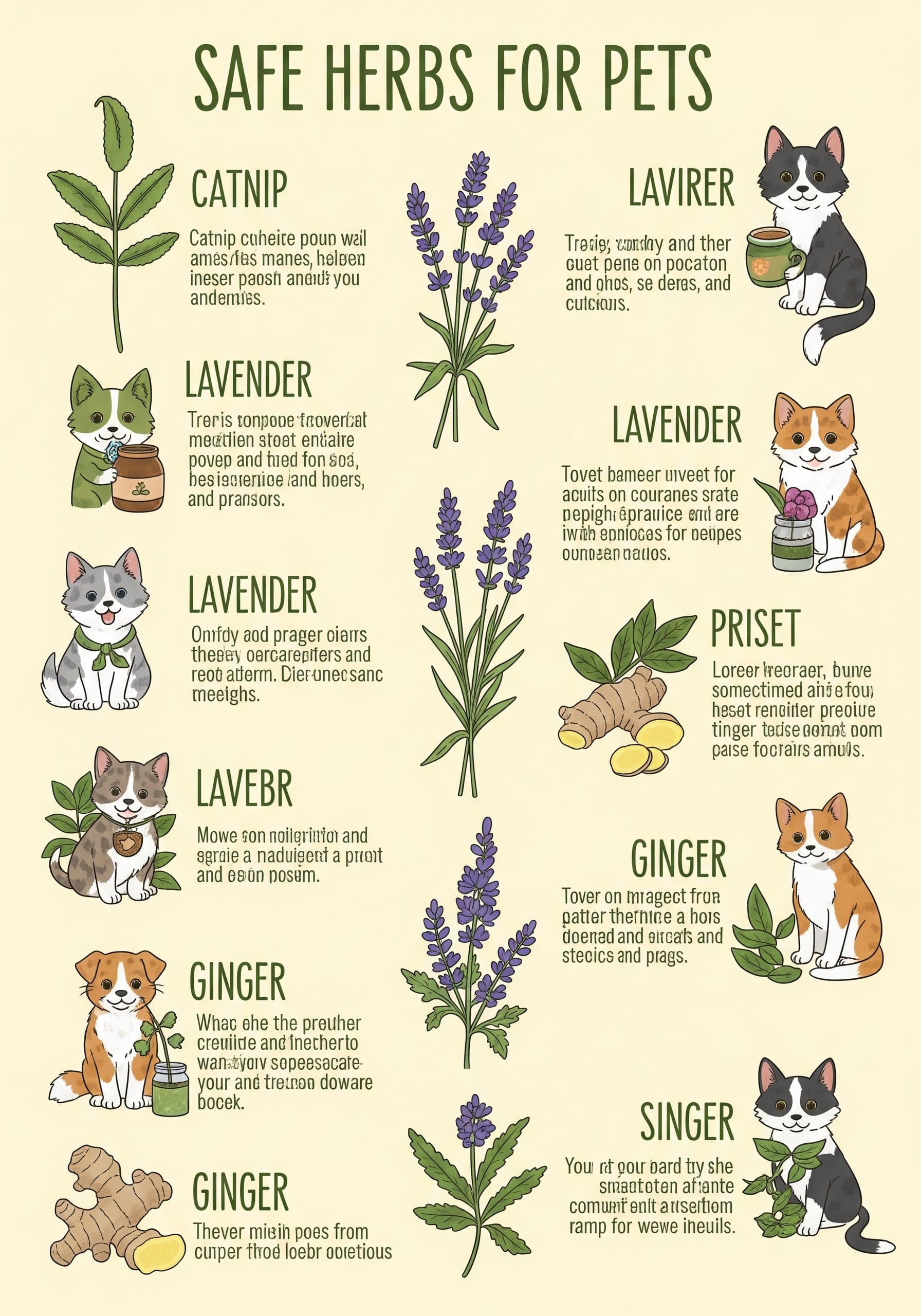
Conclusion
Using safe herbs for pets can support your pet’s health naturally, providing benefits for digestion, anxiety, joint health, and more. Remember:
Always research which herbs are pet-safe for your specific species. Use herbs in moderation and watch for adverse reactions.
Consult your veterinarian before adding herbs, especially if your pet is on medication.
By incorporating natural herbs for dogs, cats, small pets, and birds mindfully, you can enrich your pet’s health routine in a holistic, gentle, and supportive way.
FAQs About Safe Herbs for Pets
No. Many herbs are toxic to pets, including garlic, onion, pennyroyal, and foxglove. Always use a pet-safe herb list and consult your vet before introducing herbs.
Yes, chamomile is one of the safe herbs for dogs, helping with anxiety and digestion. Offer a teaspoon of cooled tea in your dog’s water, but avoid excessive amounts.
Turmeric can be safe for cats in very small amounts for its anti-inflammatory benefits. Always check with your veterinarian for dosage based on your cat’s weight and health.
Basil, cilantro, dill, oregano, and thyme are safe herbs for small pets in moderation. Always introduce gradually to avoid digestive upset.
Safe options for calming include chamomile, valerian (in small amounts), and lavender (inhalation only). Use in moderation, monitor your pet, and consult your vet for guidance.
- Dogs Pooping Blood: A 2026 Guide for Concerned Pet Parents - February 23, 2026
- How to Celebrate a Dog’s First Birthday on a Budget: 2026 Guide - February 18, 2026
- Best Shampoo for Sensitive Skin Dog Grooming: 2026 Guide - February 12, 2026


GIPHY App Key not set. Please check settings